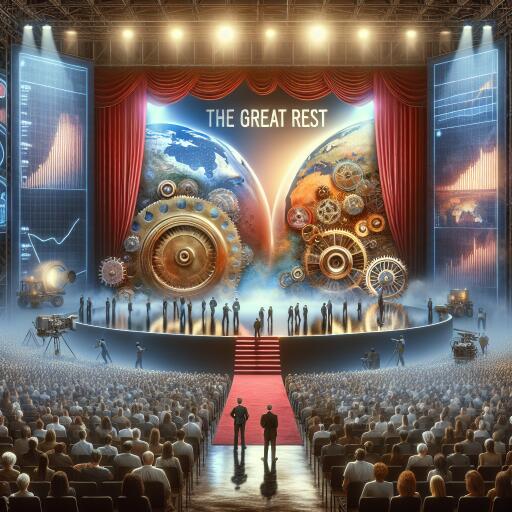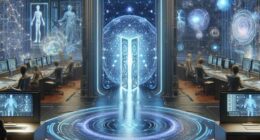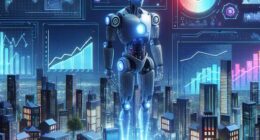Is The Stage Being Set For The Great Reset
The recent election of President-elect Trump has brought a wave of optimism, as he emerged victorious with a significant majority in the popular vote. Many citizens are relieved, anticipating a reversal of the perceived decline over the past few years. However, history imparts crucial lessons—lessons about paying attention to the direction leaders take their nations towards.
There are parallels to be drawn on a global scale, notably with the initiative put forth by the World Economic Forum founder Klaus Schwab, termed the “Great Reset,” which emerged in the early days of the Covid-19 pandemic. This initiative is closely linked to what is known as the Fourth Industrial Revolution (4th IR) and sets forth various ambitious objectives.
Among these objectives, Agenda 21, often referred to as Sustainable Development (SD), incorporates extensive technological advancements into its framework. Initially unveiled in 1992, Agenda 21 continues to evolve through its extension, Agenda 2030, which crystallizes prior goals into 17 concise objectives. Over the decades, technological progress has profoundly shaped our lifestyles and the global environment.
The concept of technocracy, defined as the utilization of technology to re-engineer societal constructs, plays a significant role in this vision for the future. The architects behind these changes are known as technocrats; professionals rooted in fields such as science, technology, engineering, or math. These individuals drive the technocratic vision, reshaping how society functions. The role of technocracy became particularly evident during the Covid-19 pandemic, under the stewardship of President Trump.
With the assembly of his administrative team, concerns arise regarding Trump’s decision-making. His appointments seem focused on individuals proficient in technology, sparking apprehensions that he might inadvertently bolster the very environment—often referred to as “the swamp”—he aims to dismantle.
Among his team, Elon Musk stands out as a quintessential technocrat, drawing parallels with his grandfather’s affiliations with the technocracy movement in the 1930s. Musk’s ventures span from electric vehicles to space exploration, and he advocates for policies like carbon taxes to address climate concerns, while envisions solar energy as the way forward.
Likewise, Vivek Ramaswamy emerges as another significant figure, having engaged deeply in the biotech industry. His approaches have been radical, including suggestions to reassess federal workforce size based on metrics like social security numbers.
The team’s AI and cryptocurrency agenda gains traction with figures like David Sacks stepping into pivotal roles. By driving AI integration within government structures, they foster the Fourth Industrial Revolution’s spirit, seeking transformative methods tied to technological advancements.
Howard Lutnick’s participation as a nominee for the Department of Commerce reflects a push for sustainable development goals, emphasizing digital transformation and decarbonization. Meanwhile, figures like Peter Thiel, although not occupying formal positions, provide influential guidance, with data collection and analysis remaining integral to the upcoming technological era.
The concerns are substantial. Skepticism remains over the potential privatization of constitutionally mandated departments, with individuals poised to reshape foundational government operations. The implications of this technocratic shift resonate deeply, urging vigilance and scrutiny.
It is imperative to scrutinize every step in this approaching administration to ensure that America doesn’t inadvertently veer into technocracy. This is a critical juncture where citizens must remain observant, ensuring genuine transformation and not just a superficial “drain” of governmental inefficiencies. Prudence and vigilance are paramount as we witness these unfolding developments.










